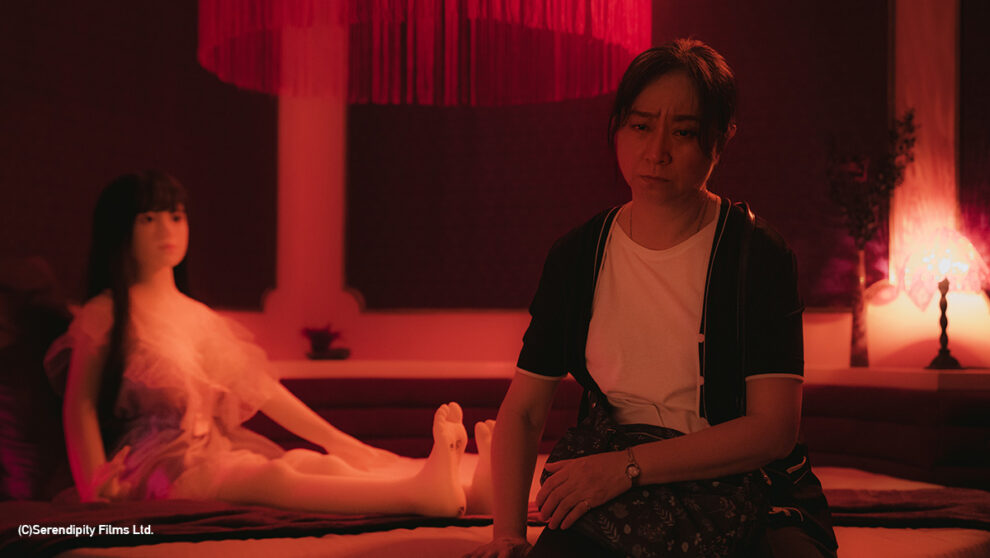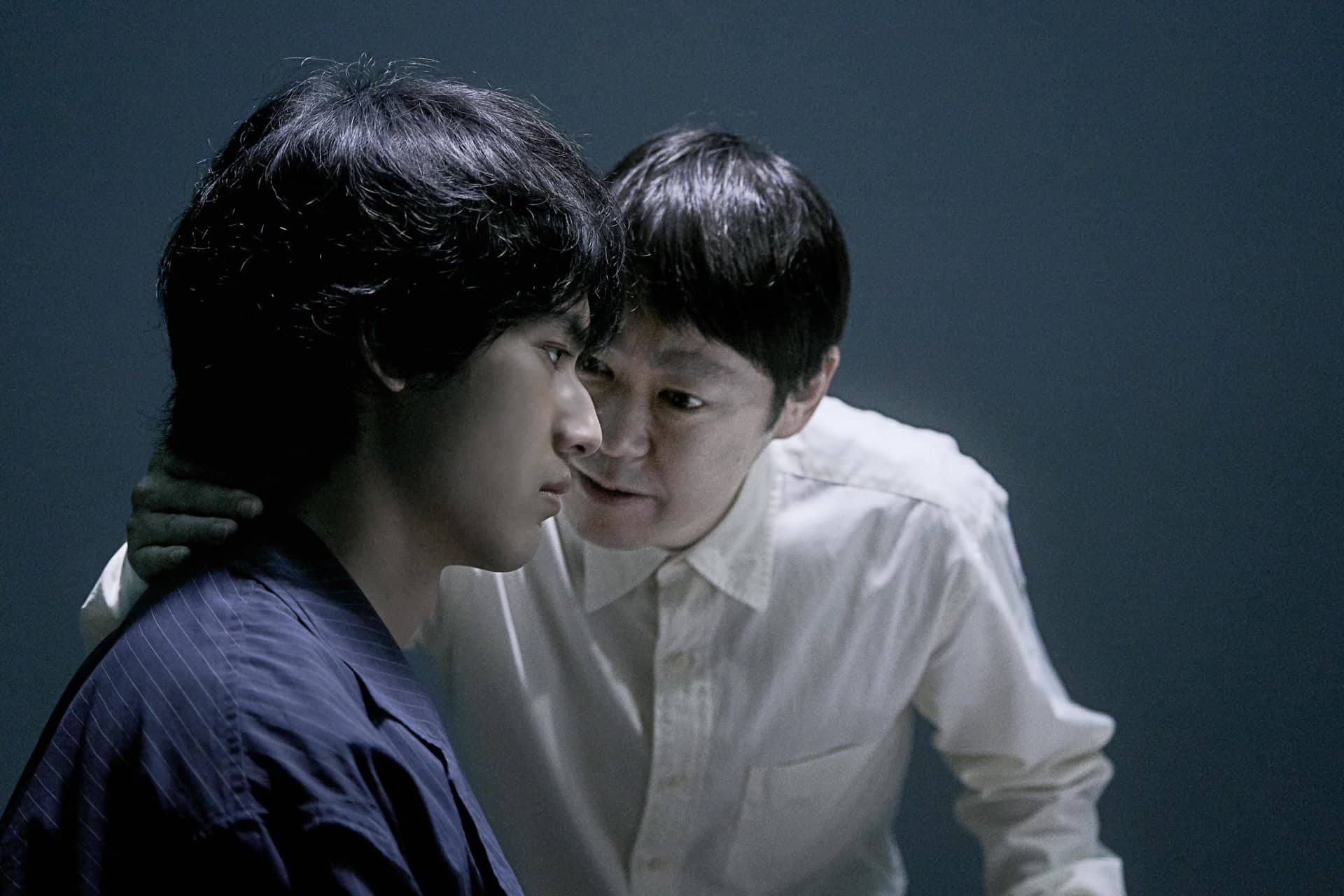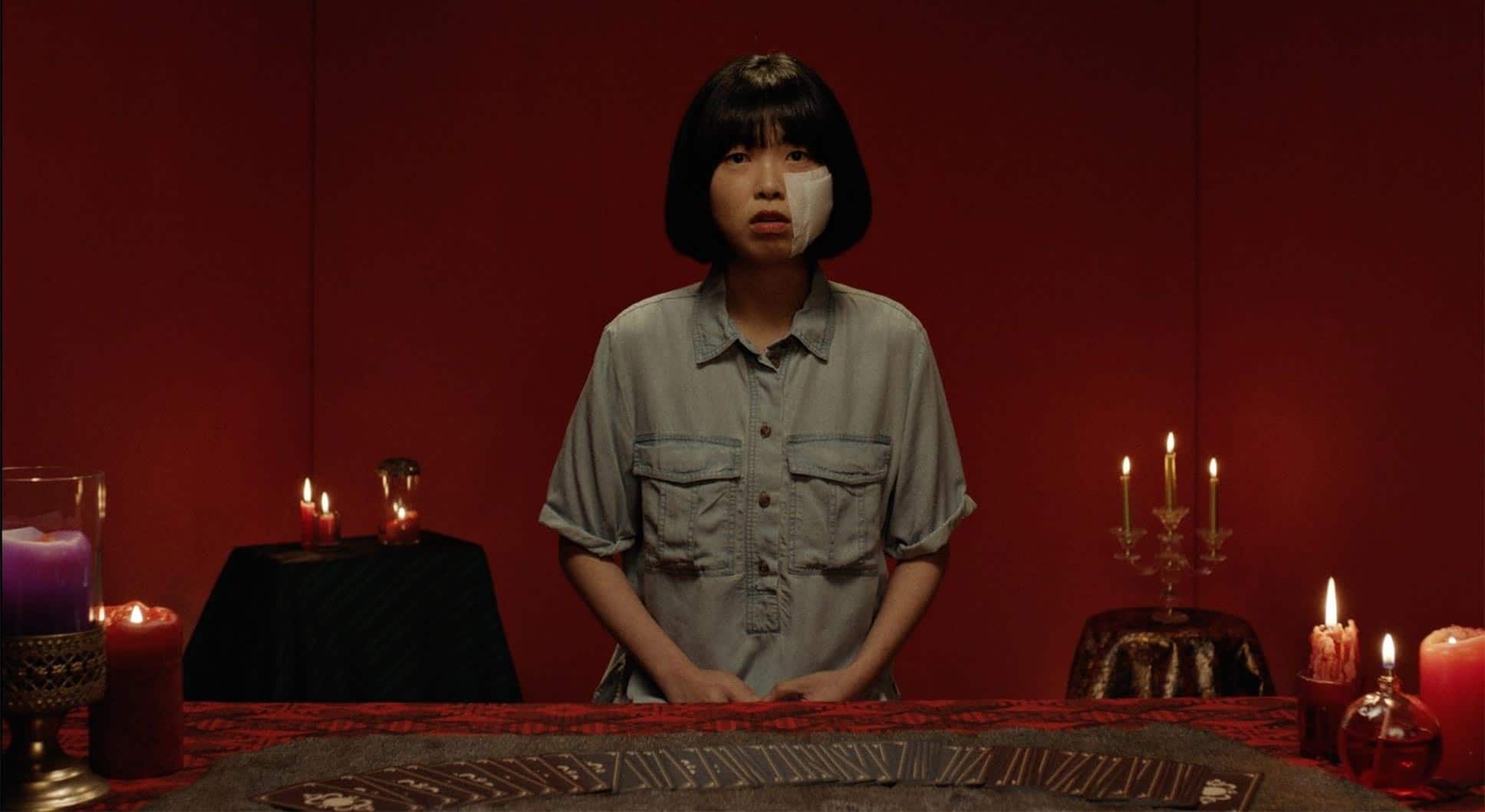“Raising Arizona” meets “Lars and the Real Girl” in Galilee Ma's sophomore drama short: “Natasha”. Beset with a strange obsession with Natasha (Meiko), a sex doll, a middle aged woman conspires to rescue her from a brothel. Despite its wildly captivating premise and build-up, the unusual film grasps at modern realities of alienation and grief in Taiwan with dwindling success. Still, strangeness abounds in this melodramatic vignette, and leaves one in anticipation of Ma's future endeavors.
“Natasha” is screening at Osaka Asian Film Festival

The perennial ills of short filmmaking seem to be cases of brilliant ideas underdeveloped. “Natasha” opens with a splash, with an ominous, but tongue-in-cheek recital of a passage from the book of Revelations. “I saw the Holy City, the new Jerusalem, coming down out of heaven from God, prepared as a bride beautifully dressed for her husband.” Immediately cutting away, we are thrust into the opposite of biblical: the dingy sex doll brothel. Drenched in hazy red lights, amongst promiscuous men, the fatigued-looking, cardigan-wearing, middle aged auntie (Li Yin Yang) could not be more out of place. Yet she is exactly where she needs to be. She heads suspiciously to the brothel receptionist, quietly gets her loyalty card stamped, then goes in to meet her sex doll. In an instant, our curiosity is piqued. We want nothing but to watch on.
Quite unfortunately, the plot begins to stumble just as it begins forming. Becoming an explainer of sorts, in a way similar to the diminishing paces of “Nina Wu”, the rest of the story hopes to lead us to a penultimate understanding of why we are stealing Natasha. When undoubtedly, it is not really of interest, when compared to the outlandish exploits of how we are going to sneak Natasha out, and what madness that will lead to. If we have learned anything from absurdity, it's that the mystery of the motive is often far more alluring. Understanding leaves us flat. And it is rather so, with Ma's screenplay, that as we get closer to the disappointing climax, the plot loses its hold over the audience.
The redundancy of knowing why also comes from the fact that we already, sort-of know. The inkling, mere suggestion of the main character's brusque maternal suggestion towards Natasha is more than enough. As Jason Maher of Osaka Asian Film Festival (OAFF) writes, “Natasha” does follow in an undefined, but undying tradition of stories surrounding sex dolls, and the people who become attached to them, often not in a way for their intended use. As repeatedly implied in “Natasha”, our protagonist wants nothing of her body, just the facsimile of her humanity. She covers up Natasha's nakedness as soon as she is able to. She winces at Natasha's mechanical moaning, that sounds like an alarm when she is held. Like a symbol of constipated affection, Ma harps on the melodramatic message that we cannot undo our human nature. That our emotions, beautiful or horrid, must find an outlet. And if it cannot go to a person, then it will tragically find itself in a hunk of silicone.
Ma's equal touch of sentiment and dread spread across the film well. Cinematographer Ai Chung's and gaffer Joseph Chun Fu Chang's combination of enigmatic composition and lighting bolster this tone, with a repeated leitmotif of wide shots on Natasha alone. These painterly frames, initially in dim chiaroscuro, but increasingly in bright sunny daylight as the film progresses, prod at our minds. Leaves us teetering on the thin line of whether we should consider Natasha a prop, or a character, or something uncomfortably in between.
Intriguingly here, Ma does raise a new tussle of discussion. Narratives of people finding solace in sex dolls always beg for our sympathy. It's a veiled cry for help, they claim, not a dynamic that allows them to literally objectify their partner. But the seemingly noble pursuit to kidnap Natasha puts into question that she is still an object, to be passed around and owned. When we later observe a client (Joshua Yang) proposing marriage to a sex doll, it is glaringly clear that consent in this situation is straight up nada. So how different is our protagonist, when she beseeches, cash in hand, that she ‘just wants Natasha'?















